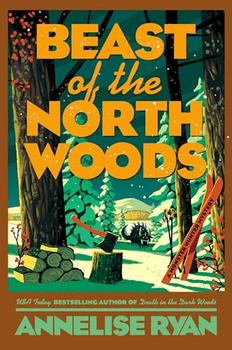Summary | Excerpt | Reading Guide | Reviews | Readalikes | Genres & Themes | Author Bio

Chapter 1
In the morning, the old general spent a considerable time in the wine cellars with his winegrower inspecting two casks of wine that had begun to ferment. He had gone there at first light, and it was past eleven o'clock before he had finished drawing off the wine and returned home. Between the columns of the veranda, which exuded a musty smell from its damp flagstones, his gamekeeper was standing waiting for him, holding a letter.
"What do you want?" the General demanded brusquely, pushing back his broad-brimmed straw hat to reveal a flushed face. For years now, he had neither opened nor read a single letter. The mail went to the estate manager's office, to be sorted and dealt with by one of the stewards.
"It was brought by a messenger," said the gamekeeper, standing stiffly at attention.
The General recognized the handwriting. Taking the letter and putting it in his pocket, he stepped into the cool of the entrance hall and, without uttering a word, handed the gamekeeper both his stick and his hat. He removed a pair of spectacles from his cigar case, went over to the window where light insinuated itself through the slats of the blinds, and began to read.
"Wait," he said over his shoulder to the gamekeeper, who was about to leave the room to dispose of cane and hat.
He crumpled the letter into his pocket. "Tell Kalman to harness up at six o'clock. The Landau, because there's rain in the air. And he is to wear full-dress livery. You too," he said with unexpected force, as if suddenly angered. "Everything must shine. The carriage and harness are to be cleaned immediately. Then put on your livery, and seat yourself next to Kalman on the coachbox. Understood?"
"Yes, Excellence,"said the gamekeeper, looking his master directly in the eye. "At six o'clock." "At half past six you will leave," said the General, and then appeared to be making some calculation, for his lips moved silently. "You will go to the White Eagle. All you are to say is that I have sent you, and the carriage for the Captain is waiting. Repeat."
The gamekeeper repeated the words. Then the General raised his hand, as if he had just thought of something else, and he looked up at the ceiling but didn't say anything and went upstairs to the second floor. The gamekeeper, still frozen to attention, watched him, unblinking, and waited until the thickset, broad-shouldered figure disappeared around the turn of the stone balustrade.
The General went into his room, washed his hands, and stepped over to his high, narrow standing desk; arranged on its surface of unstained green felt were pens, ink, and a perfectly aligned stack of those notebooks covered in black-and-white-checked oilcloth commonly used by schoolchildren for their home- work. In the middle of the desk stood a green-shaded lamp, which the General switched on, as the room was dark. On the other side of the closed blinds, in the scorched, withered garden, summer ignited a last blaze like an arsonist setting the fields on fire in senseless fury before making his escape. The General took out the letter, carefully smoothed the paper, set his glasses on his nose and placed the sheet under the bright light to read the straight short lines of angular handwriting, his arms folded behind his back.
There was a calendar hanging on the wall. Its fist-sized numbers showed August 14. The General looked up at the ceiling and counted: August 14. July 2. He was calculating how much time had elapsed between that long-ago day and today. "Forty-one years," he said finally, half aloud. Recently he had been talking to himself even when he was alone in the room. "Forty years,"he then said, confused, and blushed like a school- boy who's stumbled in the middle of a lesson, tilted his head back and closed his watering eyes. His neck reddened and bulged over the maize-yellow collar of his jacket. "July 2, 1899, was the day of the hunt," he murmured, then fell silent. Propping his elbows on the desk like a student at his studies, he went back to staring anxiously at the letter with its brief handwritten message. "Forty-one," he said again, hoarsely. "And forty-three days. Yes, exactly."
Excerpted from Embers by Sandor Marai Copyright 2001 by Sandor Marai. Excerpted by permission of Knopf, a division of Random House, Inc. All rights reserved. No part of this excerpt may be reproduced or reprinted without permission in writing from the publisher.




Help Wanted by Adelle Waldman
From the best-selling author of The Love Affairs of Nathaniel P. comes a funny, eye-opening tale of work in contemporary America.

Going Home
by Tom Lamont
Going Home is a sparkling, funny, bighearted story of family and what happens when three men take charge of a toddler following an unexpected loss.

Beast of the North Woods
by Annelise Ryan
When a local fisherman is mauled to death, it seems like the only possible cause is a mythical creature.

The Secret History of the Rape Kit
by Pagan Kennedy
The story of the woman who kicked off a feminist revolution in forensics, and then vanished into obscurity.
Your guide toexceptional books
BookBrowse seeks out and recommends the best in contemporary fiction and nonfiction—books that not only engage and entertain but also deepen our understanding of ourselves and the world around us.